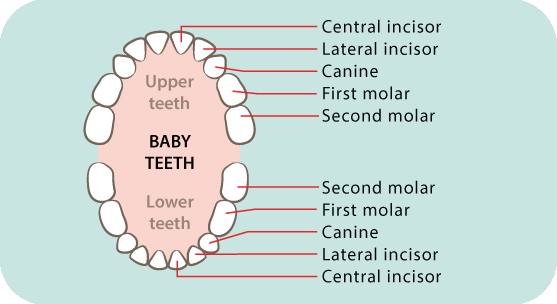Preschooler behaviour: what to expect
Preschoolers are curious, easily distracted, keen on independence and still developing self-regulation. Preschool helps your child learn about getting along with others and following rules. Common preschooler behaviour concerns are tantrums, habits, lying and anxiety. Your preschooler needs you to guide his behaviour in positive ways.
Preschoolers are curious, easily distracted, keen on independence and still developing self-regulation. Preschool helps your child learn about getting along with others and following rules. Common preschooler behaviour concerns are tantrums, habits, lying and anxiety. Your preschooler needs you to guide his behaviour in positive ways.
Supporting siblings of children with disability
Typically developing children need to feel that they matter as much as their siblings with disability. You can support typically developing children by talking with them, spending time together and problem-solving together. You can help typically developing children to connect with people outside the family through sports clubs, extracurricular activities, time with friends, and support groups.
Typically developing children need to feel that they matter as much as their siblings with disability. You can support typically developing children by talking with them, spending time together and problem-solving together. You can help typically developing children to connect with people outside the family through sports clubs, extracurricular activities, time with friends, and support groups.
Helping siblings of children with autism spectrum disorder
Being the sibling of a child with autism spectrum disorder (ASD) can be both a challenging and enriching experience. Here are some ideas for looking after typically developing siblings of children with ASD, ensuring they get your time and attention, and helping them understand more about ASD.
Being the sibling of a child with autism spectrum disorder (ASD) can be both a challenging and enriching experience. Here are some ideas for looking after typically developing siblings of children with ASD, ensuring they get your time and attention, and helping them understand more about ASD.
How to breastfeed: in pictures
How to breastfeed in the early days: baby-led attachment
Once breastfeeding is going well: mother-led attachment
Breastfeeding problems: what to do
How to breastfeed in the early days: baby-led attachment
Once breastfeeding is going well: mother-led attachment
Breastfeeding problems: what to do
Brushing children’s teeth: in pictures
About children’s teeth
 Baby teeth
Baby teethAbout children’s teeth
Baby teeth
Preschooler creative learning and development: ideas and activities
Encourage preschooler creativity by giving your child plenty of time, materials and space for play. Follow your child’s lead and boost his confidence with descriptive praise about his creative activities. Use household items, recycled objects and natural materials to spark your child’s creative play.
Encourage preschooler creativity by giving your child plenty of time, materials and space for play. Follow your child’s lead and boost his confidence with descriptive praise about his creative activities. Use household items, recycled objects and natural materials to spark your child’s creative play.
Iodine: what you need to know
Iodine is important for growth and development, especially in babies and children. Grown-ups need it too. To see whether you and your family are getting enough, start by checking your diet.
Iodine is important for growth and development, especially in babies and children. Grown-ups need it too. To see whether you and your family are getting enough, start by checking your diet.
Carbohydrates and GI
Our bodies get energy by turning carbohydrates into simple sugars. Different carbohydrates are broken down into sugars at different rates, and glycaemic index (GI) is how we measure this. Low-GI foods give your child longer-lasting energy.
Our bodies get energy by turning carbohydrates into simple sugars. Different carbohydrates are broken down into sugars at different rates, and glycaemic index (GI) is how we measure this. Low-GI foods give your child longer-lasting energy.
Vitamins and minerals
We need vitamins and minerals to grow, to see properly, to make bones, muscles and organs, and to battle infections. If we don’t get enough of all the vitamins and minerals, it can lead to serious problems.
We need vitamins and minerals to grow, to see properly, to make bones, muscles and organs, and to battle infections. If we don’t get enough of all the vitamins and minerals, it can lead to serious problems.
Children learning to feed themselves
Children learning to feed themselves are developing independence, fine motor skills and food awareness.Start your child off with finger foods and then give him lots of practice using a spoon.Small, plastic, non-breakable cups are good for children learning to use a cup.Mealtime mess can be stressful. Use a bib, or put a plastic dropsheet or newspaper under the highchair.
Children learning to feed themselves are developing independence, fine motor skills and food awareness.Start your child off with finger foods and then give him lots of practice using a spoon.Small, plastic, non-breakable cups are good for children learning to use a cup.Mealtime mess can be stressful. Use a bib, or put a plastic dropsheet or newspaper under the highchair.